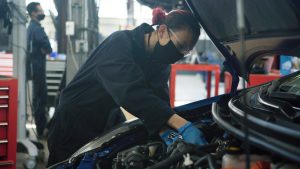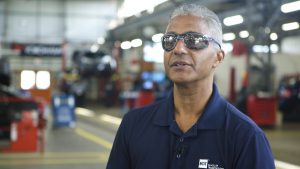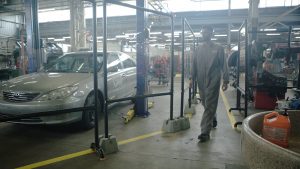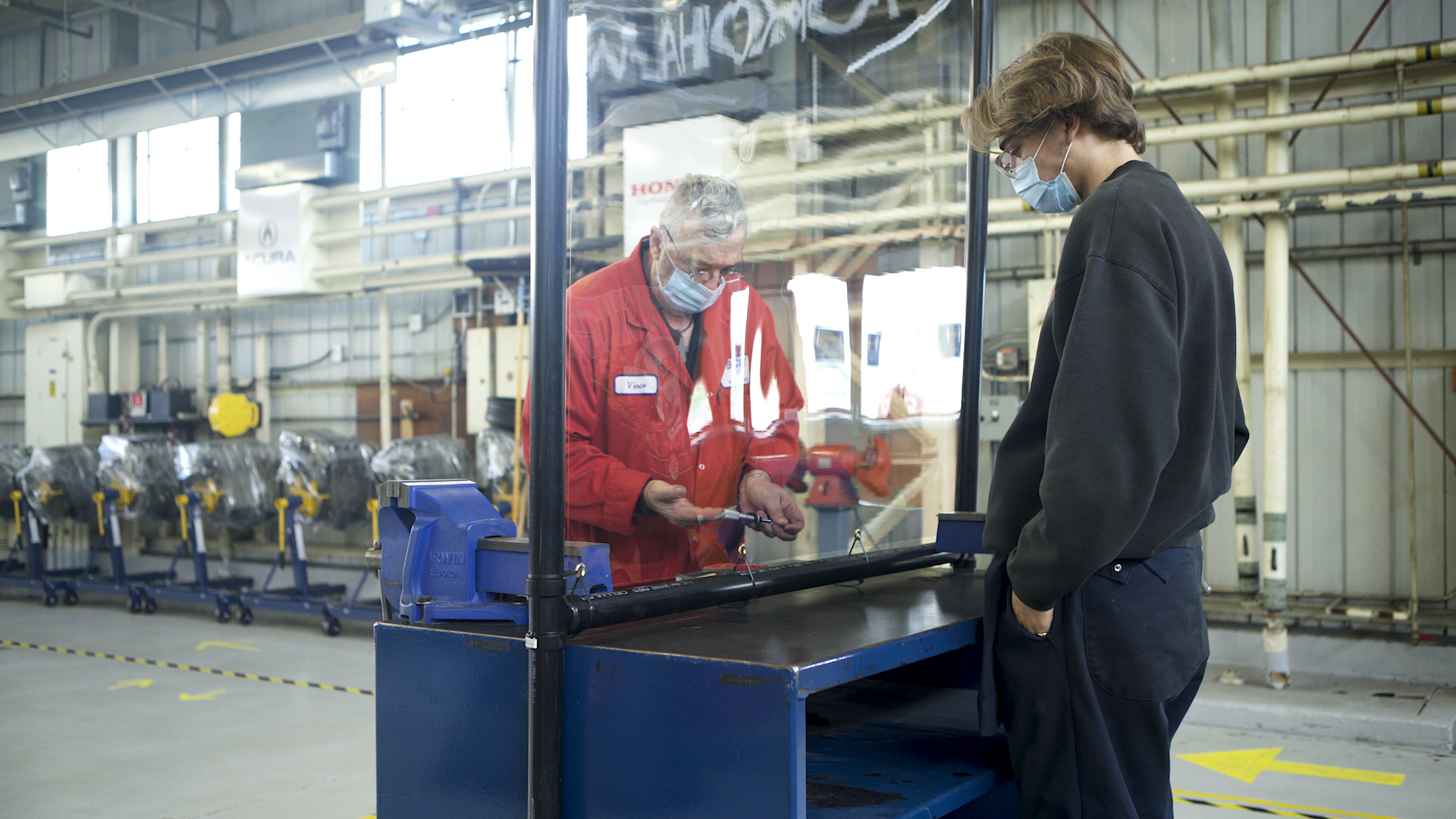
Students from the Automotive Technician Foundation program in the School of Transportation are the latest cohort of students to safely return back to their shop on the BCIT Burnaby Campus. In collaboration with Occupational Health and Safety (OHS), an extensive risk assessment plan with enhanced protocols has been implemented to ensure the safety of students, faculty, and staff in the shop. Despite the many newly added measures in place, this has surprisingly improved the efficiency of students’ work in the shop and prepared them with practical skills to safely service vehicles when they enter the workforce during the COVID-19 pandemic.
Managing productivity and preparing students for success

“One of the most interesting things we found is that students are accomplishing tasks a lot quicker. Students now work individually, instead of in pairs as in the past. With the theory portion being delivered remotely, students are able to hit the ground running to accomplish their assigned tasks when they enter the shop. So what we’ve lost in time because of the control measures, we’re making up in efficiencies because they’re working as individuals,” shared Mubasher Faruki, Associate Dean of Automotive, School of Transportation.
The thorough safety protocols and measures in place also served as an educational opportunity for students to gain the practical, hands-on skills needed to work in a workforce that has strict guidelines and policies implemented to prevent the spread of COVID-19.
“We’ve taken industry practices, such as disinfecting and sanitizing vehicles, to educate our students on safety procedures and processes that they will need to follow. Our students know to identify the high touch point areas of a vehicle that they are servicing and will be able to implement these best practices so it becomes a seamless transition when they arrive in the workplace.”
Keep it simple: physical distancing, hand hygiene, and physical barriers

Under normal conditions, there are 64 students in the building but with COVID-19 protocols in place, the class of 16 students is split into two groups of eight for rotation. One group will receive one to two days of in-person, applied education in the shop while the other group will receive online instruction focusing on theory.
In the shop, maintaining a two-meter physical distance, practicing good hand hygiene, and utilizing physical barriers are key in ensuring everyone’s safety. Tape lines the ground to mark flow of traffic and each student’s workstation. Portable physical barriers, made using PVC pipe and polypropylene sheets, are used in places where a two-meter physical distancing can’t be maintained. Each student will also have their own vehicle to work on but if two students have to work on the same vehicle, they will be physical distanced with the vehicle’s two-meter diagonal length.
SEE MORE: A virtual celebration for the BCIT 2020 Graduating Class
Join Mubasher on a tour through the newly revamped shop as he shared the processes involved and protocols in place to safely reopen the shop to select students, faculty, and staff.

Nice job Mubasher, some great ideas